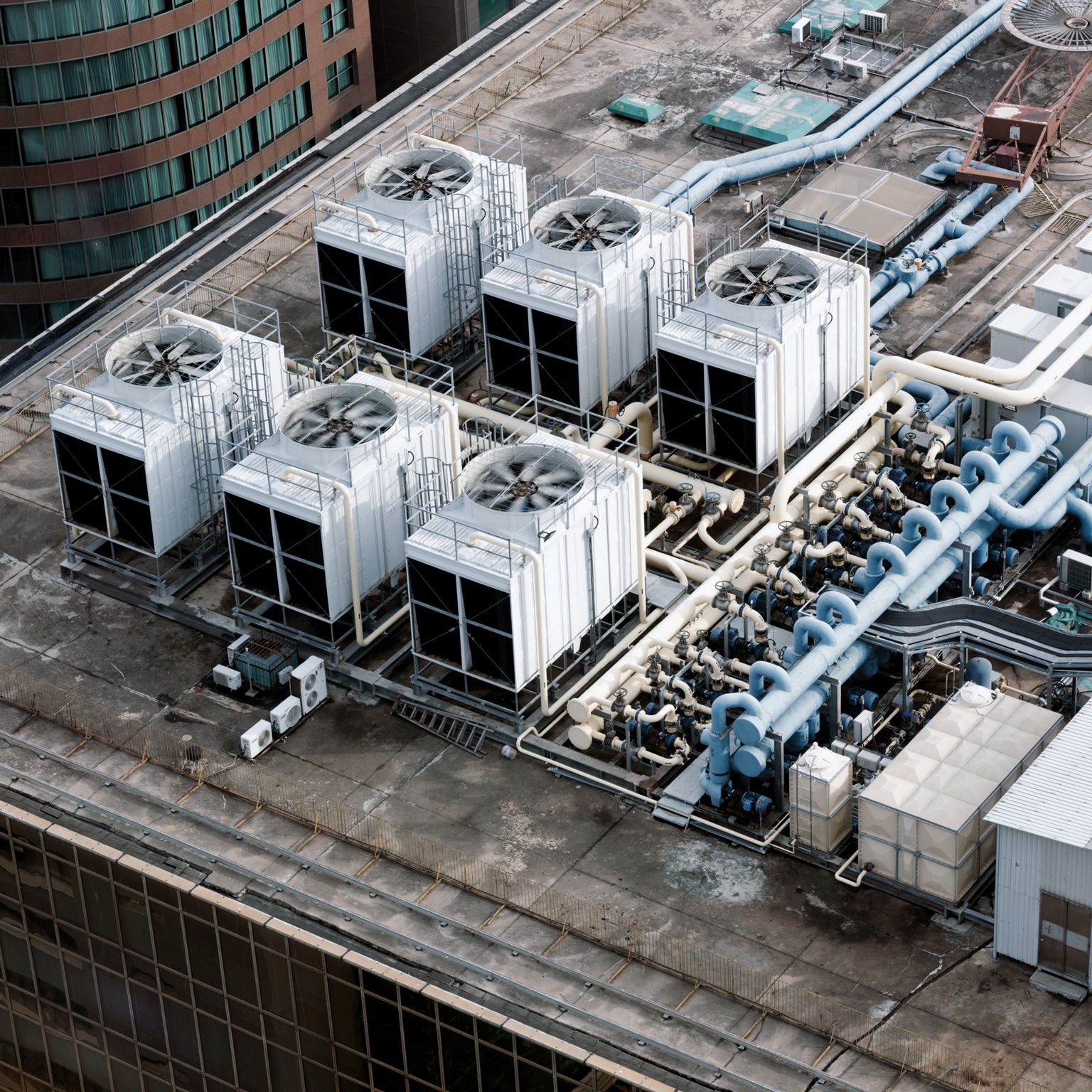When it comes to choosing an AC unit for your commercial building, there are many factors to consider. The right system will depend on the size and occupancy of the building, the climate in which it is located, and the owner’s budget. In this blog post, we’ll discuss the different types of AC systems available for commercial buildings and the pros and cons of each.
Types of Commercial AC Systems
-
Packaged Systems
Packaged AC systems are self-contained units that combine heating, cooling, and ventilation in one unit. Moreover, they are typically used for smaller commercial buildings, such as retail stores and restaurants.
Pros: Packaged systems are easy to install and maintain, and they are often less expensive than other types of HVAC systems.
Cons: They may not provide enough heating and cooling capacity for larger buildings, and they may not be as energy-efficient as other systems.
-
Split Systems
Split systems are composed of two separate units: an indoor unit that contains the evaporator coil and an outdoor unit that contains the compressor and condenser coil. Furthermore, his type of AC system is typically used for medium-sized commercial buildings.
Pros: Split systems are more energy-efficient than packaged systems, and they offer better temperature control.
Cons: They can be more expensive than packaged systems, and they require more maintenance.
-
VRF Systems
Variable refrigerant flow (VRF) systems are designed to provide heating and cooling to multiple zones within a building. In addition, they use a refrigerant to transfer heat between indoor and outdoor units.
Pros: VRF systems offer excellent temperature control, and they are highly energy-efficient.
Cons: They can be expensive to install, and they require specialized maintenance.
-
Rooftop Units
Rooftop AC units are self-contained systems that are installed on the roof of a commercial building. They are also typically used for larger buildings, such as office buildings and hospitals.
Pros: Rooftop units are easy to install, and they offer excellent heating and cooling capacity.
Cons: They can be noisy and may not be as energy-efficient as other systems.
Making the Right Decision
When choosing an AC unit for your commercial building, it’s important to consider factors such as building size, occupancy, and budget. A qualified HVAC contractor can help you determine which system is best for your specific needs. In general, larger buildings may require split systems or rooftop units. Meanwhile, smaller buildings may be better served by packaged systems. Energy efficiency should also be a consideration. The more efficient the system, the more money will save you on energy bills in the long run.
A Guide to Choosing the Right AC System for Your Commercial Building
Choosing the right AC system for your commercial building is a crucial decision that can impact the building’s comfort, energy consumption, and overall operating costs. By understanding the different types of AC systems available and their pros and cons, building owners can make informed decisions that result in optimal performance and energy efficiency. With the help of a qualified HVAC contractor, building owners can ensure that their air conditioning system meets the unique needs of their commercial building.
Get Customized and Reliable Commercial AC Solutions at Ivannova Air Conditioning
When it comes to commercial air conditioning systems, it’s essential to choose a reliable and efficient solution that meets the unique needs of your business. At Ivannova Air Conditioning, we understand the importance of having a properly functioning AC system for your commercial space. We provide customized and reliable solutions to customers. In addition, our company delivers high quality work at incredibly prices. We always put our customers first. Call us today at (305) 713-6033 or schedule online.

